How to make your dishwasher last longer and need fewer repairs
Want to get the most out of your dishwasher? Here’s how to make it last longer
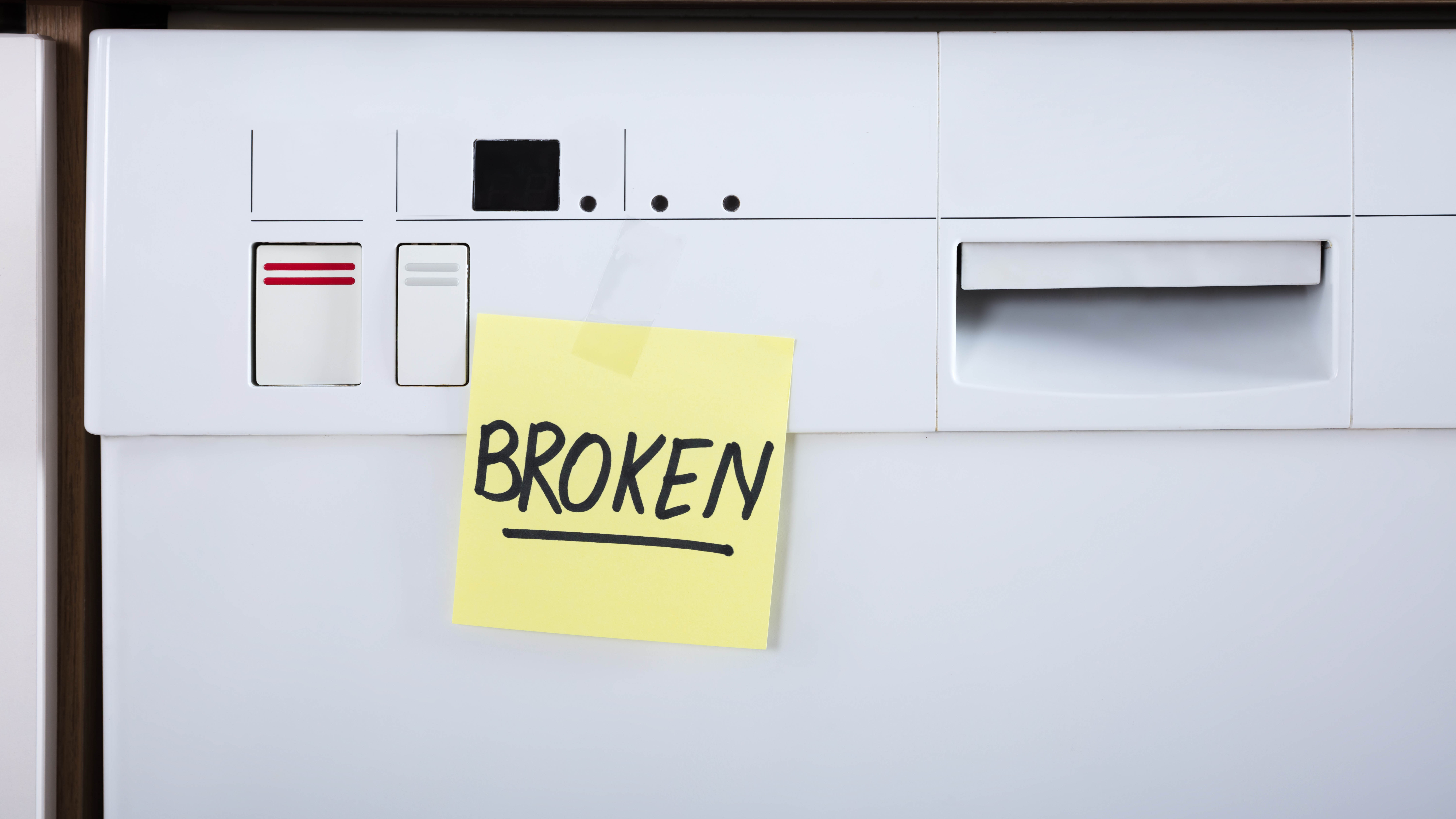
Dishwashers are lasting longer than they ever have before — with some models functioning for more than a decade before needing attention. But, the fact is even the best dishwashers will eventually show signs of wear and tear, with repairs being necessary or perhaps even requiring you to buy a full-blown replacement.
The good news is that there are ways you can help extend your dishwasher's lifespan. Following these tips can help avert expensive repair bills while also giving your dishwasher a new lease of life.
Here’s how to make your dishwasher last longer. (Want to show the same care to other appliances? Check out how to make your washing machine last longer and you could be ruining your washing machine without knowing it — try these 3 cheap hacks to extend its life.
How to make you dishwasher last longer
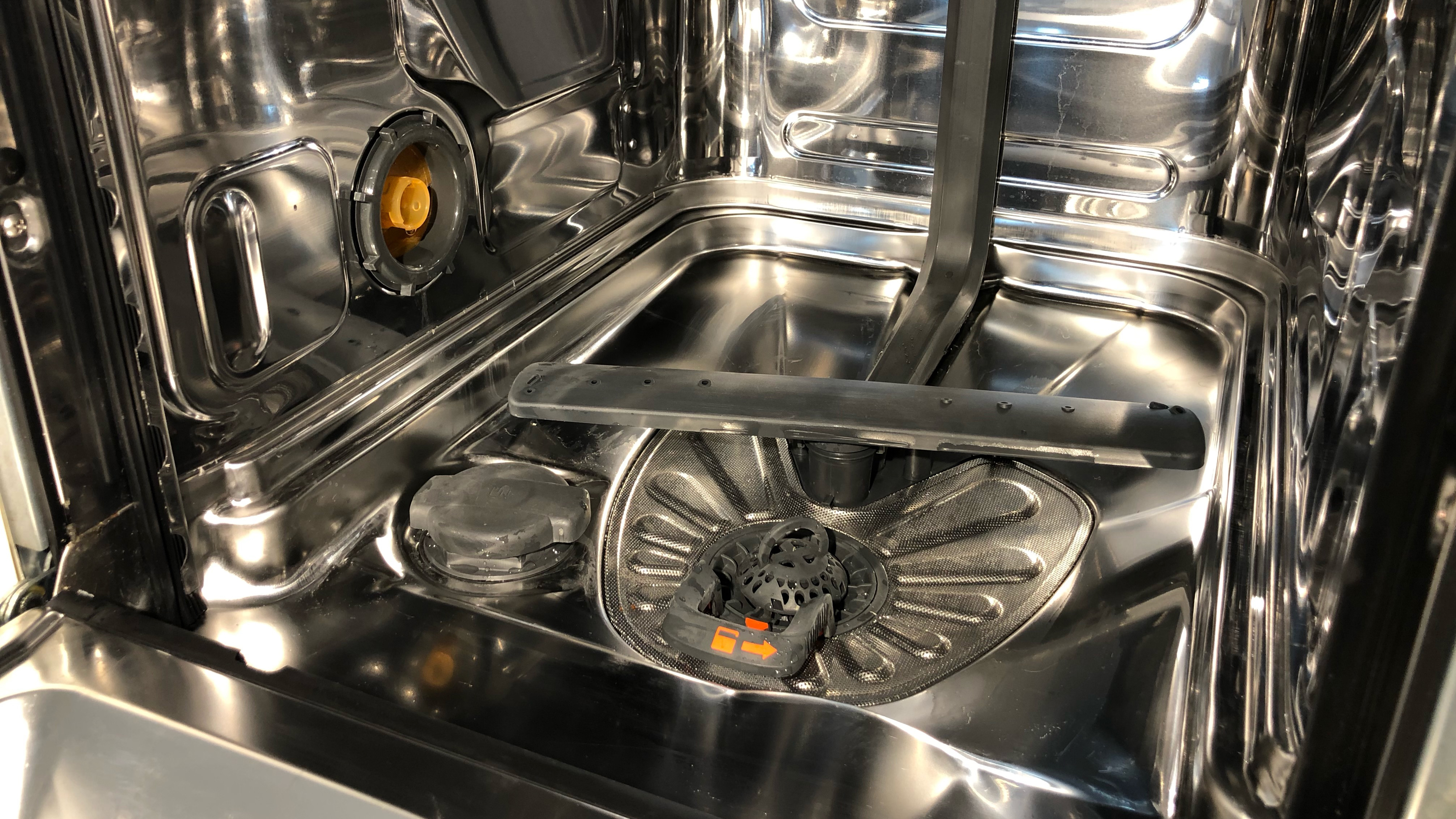
1. Deep clean your dishwasher — It’s imperative that you take the time to learn how to clean a dishwasher, and follow this guidance once a month. While it might seem like a lot, it isn't when you consider all of the residue and detergent that your dishwasher is subject to on a daily basis.
Deep cleaning your dishwasher involves giving the machine a once over with a microfiber cloth as well as cleaning the racks and accessories inside. Particular care and attention should be taken with the spray arms to make sure that they’re not blocked. The filter will also need to be removed and washed as part of this process.
If you’ve got a particularly smelly dishwasher, you can also deodorize the interior by sprinkling a cup of baking soda on the base and running a hot, quick setting.
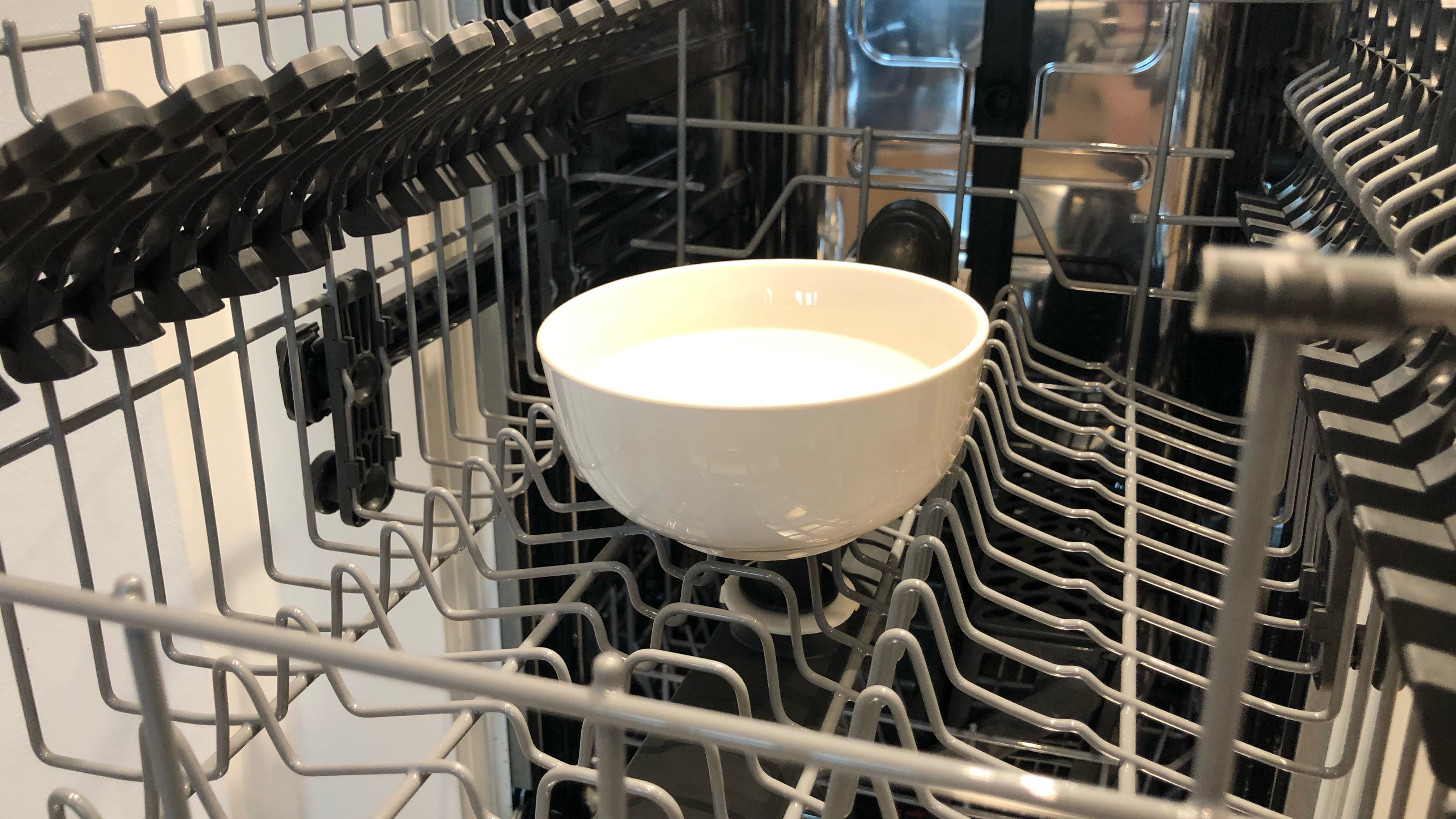
2. Use a descaler — During the deep cleaning process, you also need to use a descaler to help shift any limescale which may have built up in the pipes. You’ve got a couple of options here, you can either buy a dedicated dishwasher cleaner, such as Finish Dual Action Dishwasher Cleaner ($3.74, Amazon). Or you can use a natural alternative — white distilled vinegar.
Get instant access to breaking news, the hottest reviews, great deals and helpful tips.
If you want to opt for the vinegar method, all you need to do is fill a dishwasher-safe bowl with white distilled vinegar, sit it in the top rack with the dishwasher otherwise empty, and run it on the hottest cycle. The acidity will help break down any limescale. Don’t use bleach to clean your dishwasher as it will only damage the stainless steel interior.
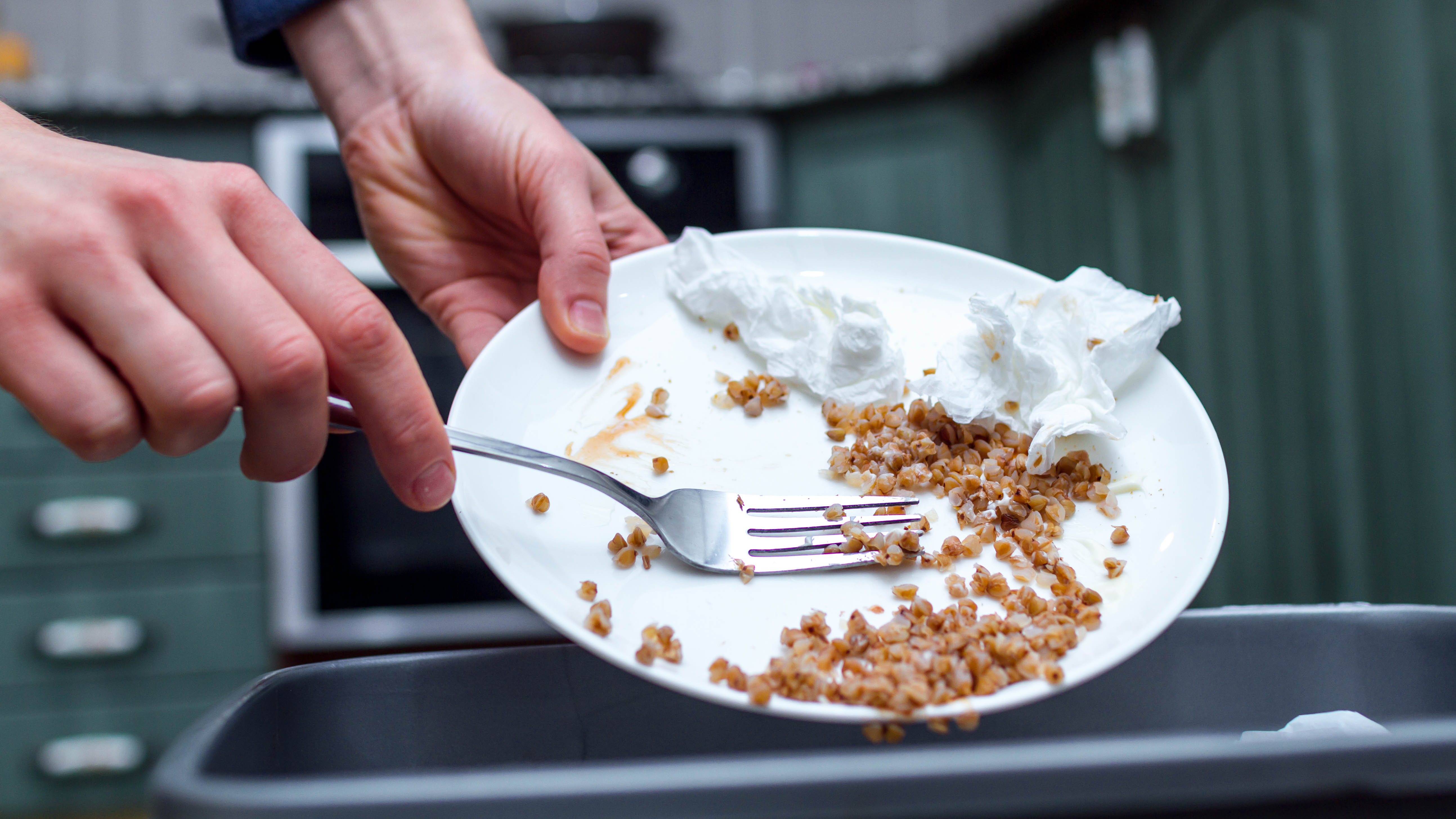
3. Scrape away food — This tip may seem obvious, but plenty of us are guilty of it. If you don’t scrape away all of the food residue from your plates and pans prior to loading them in the dishwasher, it can end up blocking the filter and ruining the cycle. If left for long periods of time this residue can also gather and start to make your dishwasher smell. That’s why scraping the plates properly is always a good idea.
That’s not to say you should rinse your plates though — in fact, rinsing plates before loading them in the dishwasher is entirely unnecessary. See this common dishwasher mistake is costing you money every day for more info on this.

4. Check the filter regularly — Even if you take every care to scrape your plates properly, some residue will eventually slip by, which is why it’s a good idea to check and clean the filter regularly. We recommend you check the filter after each cycle, otherwise the same residue can end up contaminating the next wash.
To clean the filter, simply remove it from the base of your dishwasher and wash it under hot, running water, using a toothbrush to scrub the mesh panel if necessary. You don’t need to wait for it to dry; simply replace once clean.
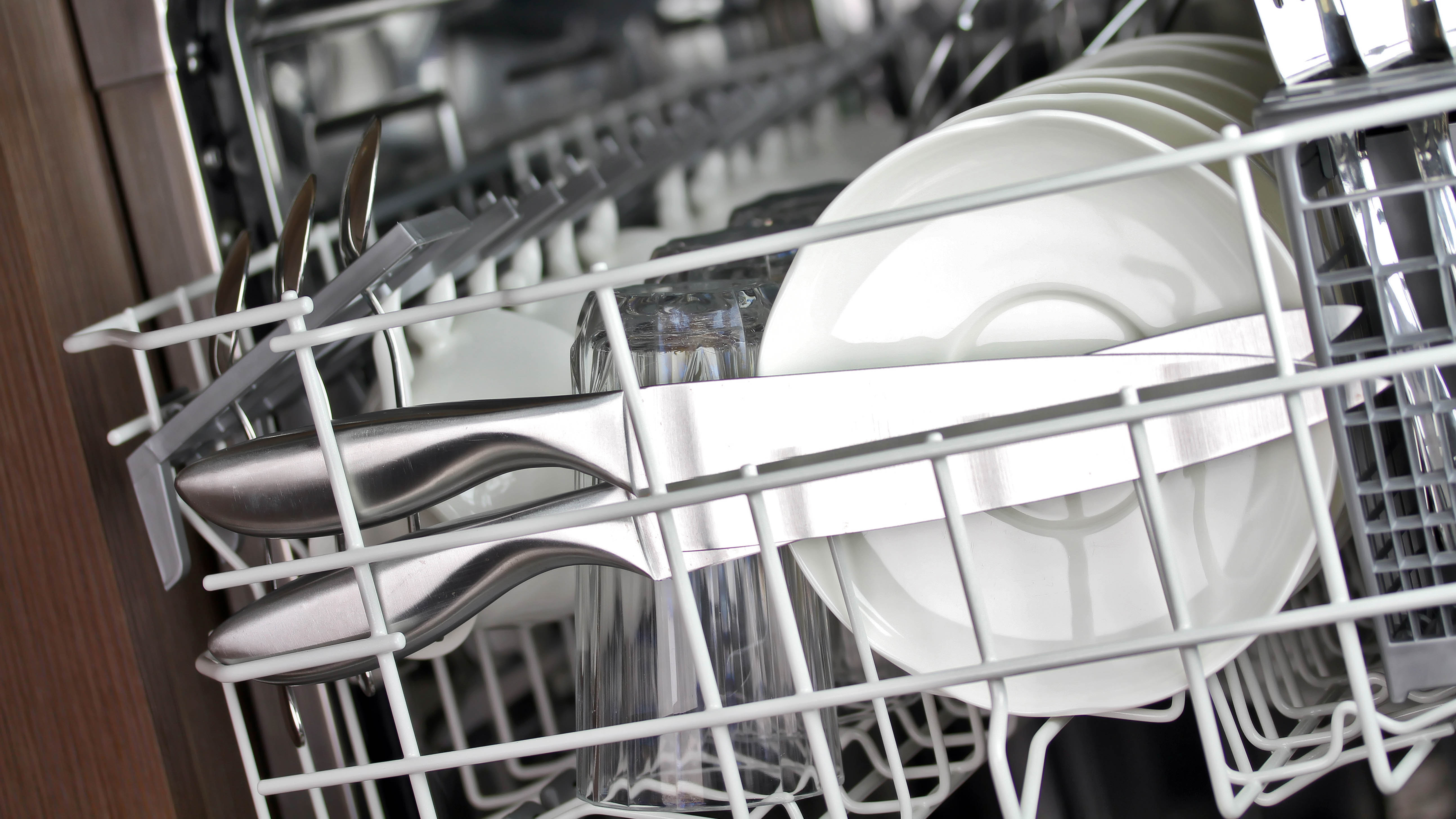
5. Don’t load anything in there you shouldn’t — Believe it or not, there are some things you should never put in a dishwasher. While some items will be damaged by the cycle, such as wooden utensils, others can actually cause damage to the dishwasher itself.
Sharp knives for instance can cut into the protective coating on the racks, leaving them vulnerable to rust. While anything fragile, such as crystal ware, can chip easily and be washed through the filter to cause some serious damage to the pump and hose. So there are times when you should use the dishwasher vs washing by hand.

6. Fill it to capacity — If you fill your dishwasher to the optimum capacity, it will naturally have to run less cycles over time, which means it won’t be worked so hard. So don’t be afraid to let your dishwasher sit in wait with some dirty crockery pre-loaded — it’s ultimately better for the machine if you fill it.
If you’re worried about it smelling during this time, you can shut the door to limit this. Some dishwashers have even been designed with special features to help limit the smell; in fact, someone finally made a dishwasher that doesn't get smelly.
Don't shut the door immediately after a cycle though, leave it ajar to air dry first. If you find your mugs are always coming out wet, this TikTok dishwasher hack will keep your mugs dry.
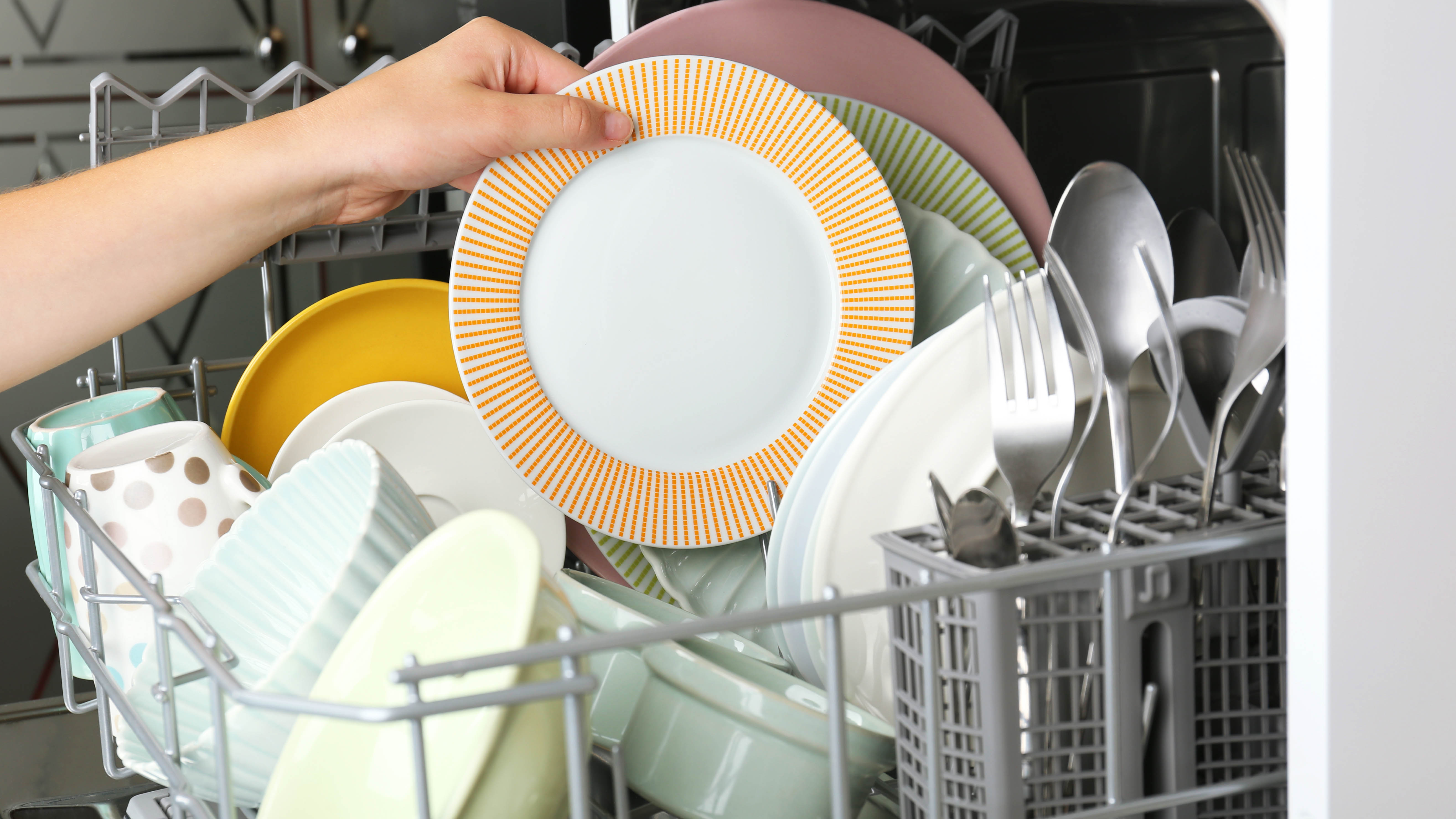
7. Load it properly — While you should fill your dishwasher to full capacity, it shouldn’t be overloaded and the cycle should be able to run effectively. That means plates shouldn’t be touching, the spray arm should be able to rotate freely and glassware should be the right way up (i.e. upside down).
Otherwise the cycle won’t be able to clean the load properly and you could end up wasting it. By reloading the same items, you’re wasting space in the next wash as well. Check out our guide on how to load a dishwasher the right way for full instructions.
Loading it properly is just one of 7 ways your dishwasher can save you money.
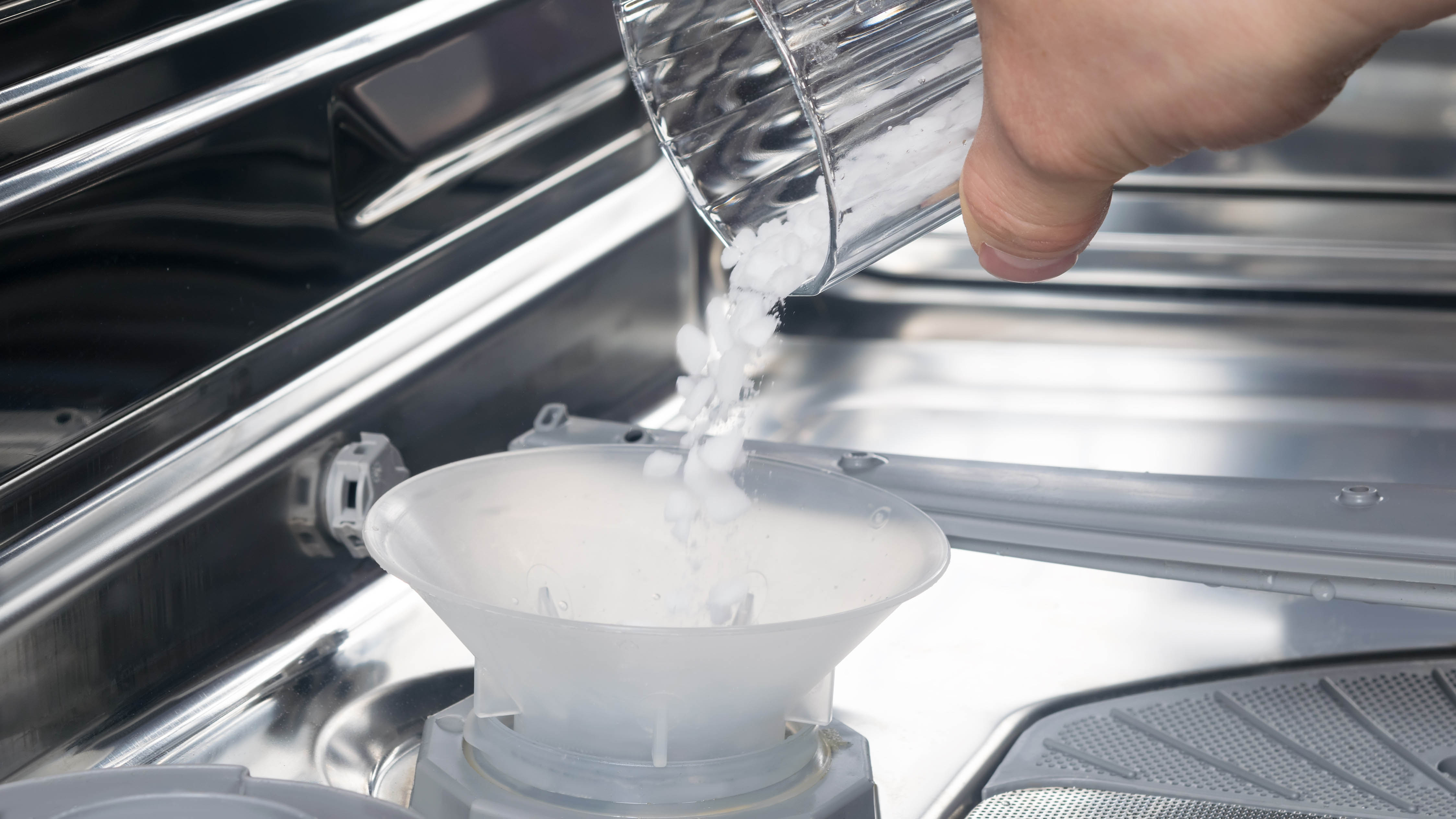
8. Keep the salt topped up — Those little lights on your dishwasher’s control panel aren’t just for show. One will indicate that your dishwasher salt needs topping up. Refer to your manual to check which is which. You can find the dishwasher salt reservoir on the base of the dishwasher; a small cap will give it away.
Dishwasher salt softens the water in your cycle which gives you better cleaning results from your detergent. It also prevents limescale from building up which can help extend your dishwasher’s lifespan.
Top up the dishwasher salt as and when necessary using the supplied funnel. Buy a dedicated brand such as Finish Dishwasher Salt ($28.15, Amazon). Do not use table salt as a replacement. If any of the dishwasher salt spills as you fill it, rinse it away immediately. Make sure the cap is replaced and tightened once full.
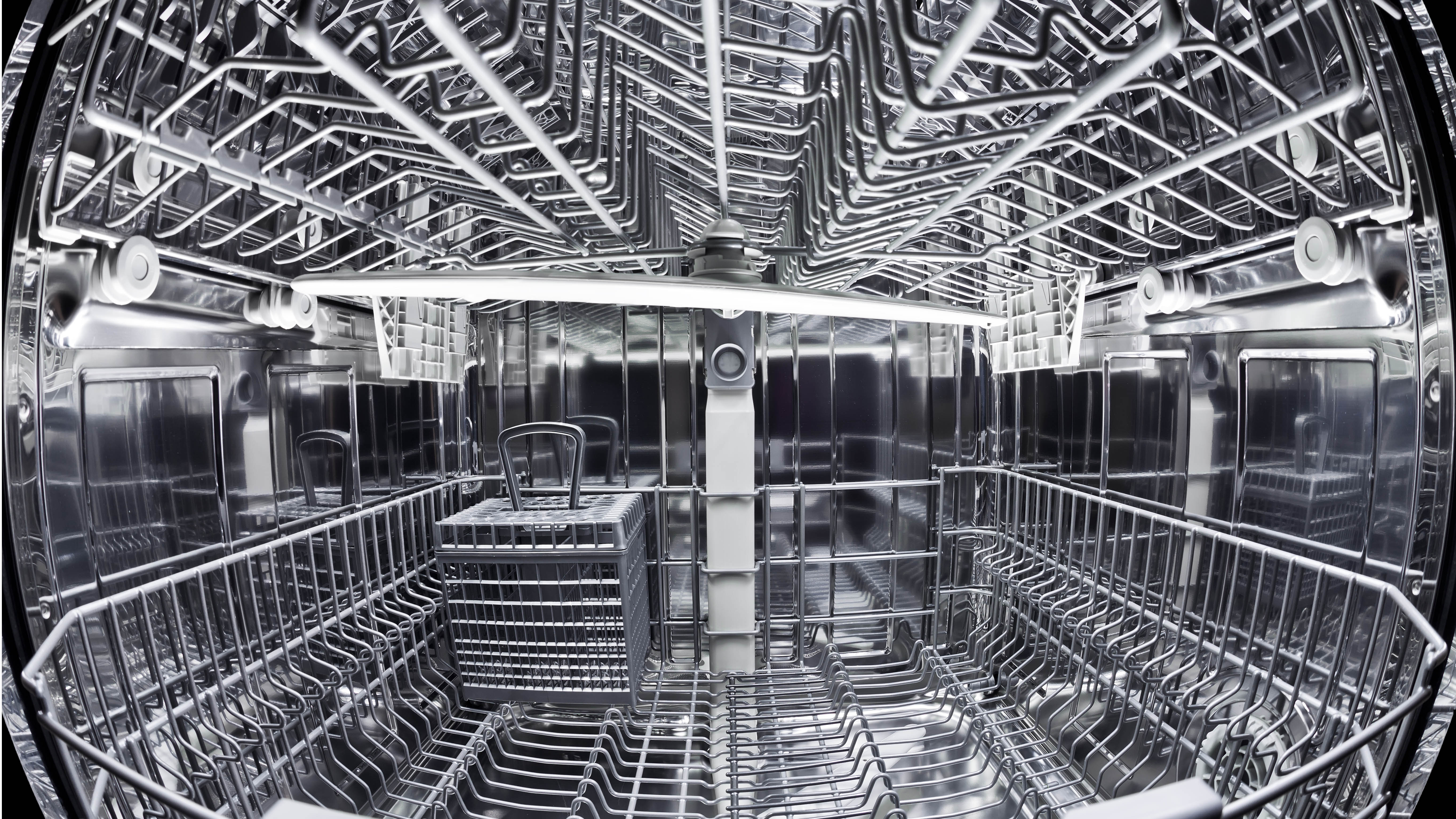
9. Replace broken parts — If any parts of your dishwasher have become faulty or broken over time, such as a missing wheel from one of the racks, you should first check if replacement parts are available before jumping the gun and replacing the whole thing.
If your dishwasher is relatively new, it may still be covered for any faults by the warranty. Be sure to check what’s covered before paying for any repairs yourself.
For more dishwasher tips and tricks, check out our guides on 10 things you never knew you could wash in a dishwasher, I wouldn’t buy a smart dishwasher or washing machine — here’s why and I tried this TikTok cleaning hack using a dishwasher tablet — here’s what happened.

Katie Mortram used to be a Homes Editor for Tom's Guide, where she oversaw everything from kitchen appliances to gardening tools, as well as smart home tech. Specializing in providing expert advice for cleaning and home manintenance, she now works as Household Advice Editor for Good Housekeeping.
 Club Benefits
Club Benefits





